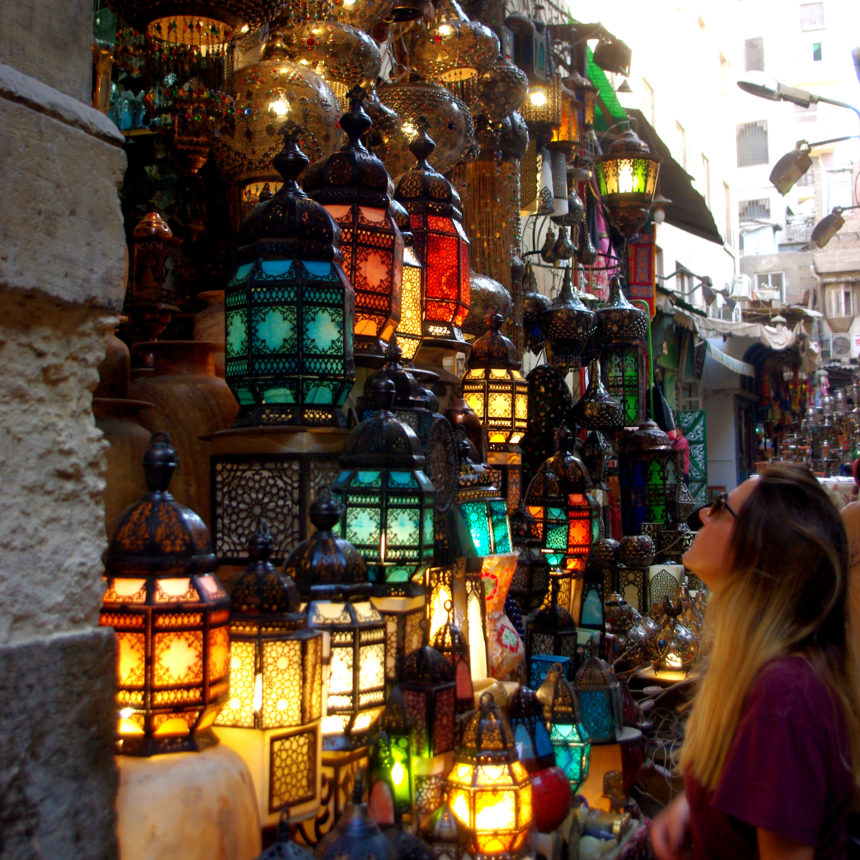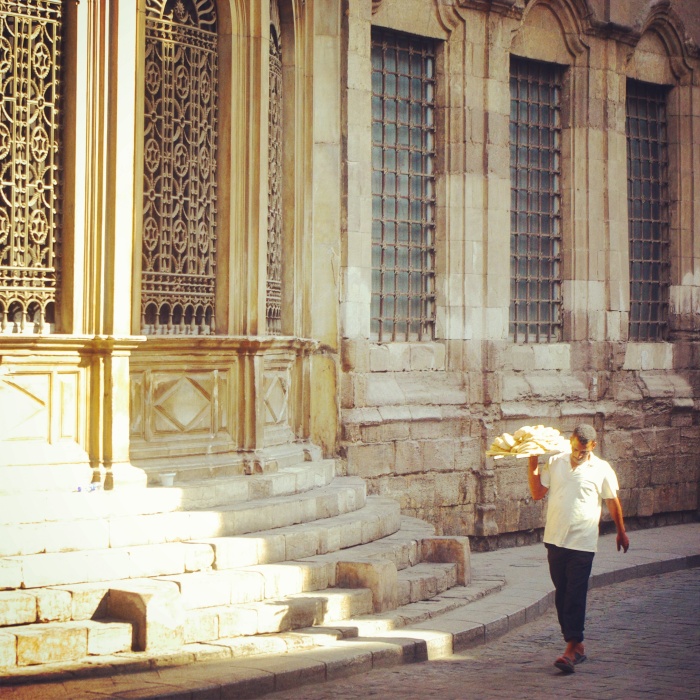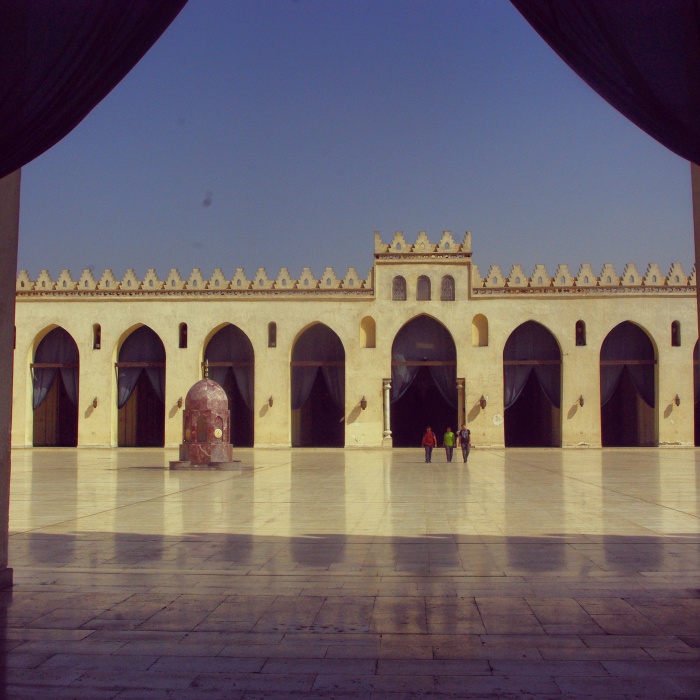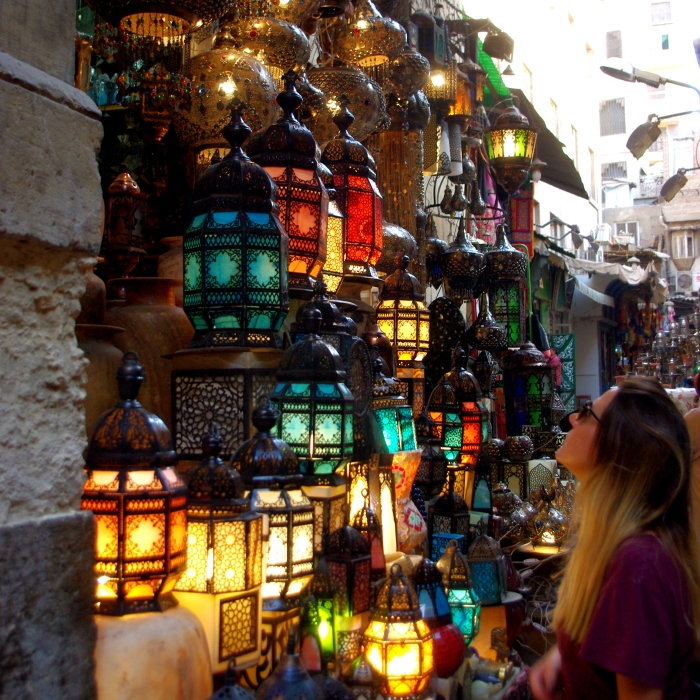It’s a hot late-summer Friday and Cairo’s historic market, Khan el-Khalili, feels like a peaceful haven among the noisy urban hustle. The souq, built in 1382 by Emir Djaharks el-Khalili in the heart of the city, is surrounded by some of the most exquisite examples of Islamic architecture: 13th century madrasas (schools), ancient mosques, and Ottoman-era buildings draw a path that inevitably takes the visitor back in time. We spent an afternoon peeking through the silver stores, smelling the spices and walking up the minarets of this mesmerizing old quarter.
It’s just a few hours after the Friday prayer as the baker unhurriedly carries fresh baked bread back to his store.
Close to Bab-al Futah and surrounded by green trees, the Hakim mosque is a white refuge of peace and silence.
Gazing at the old chandelier’s shop in Khan el-Khalili’s most colorful alleyway.
Fishawi cafe is an old tradition for poets and intellectuals, made famous by the literary Nobel Naguib Mahfouz. With the crowds considerably reduced after Egypt’s revolution, it is no surprise to find yourself laughing along the friendliest perfect strangers.
Close to the market, across the cemetery known as the City of the Dead, Cairo’s most ancient mosque Ibn Tulun offers the best views over the Citadel.
Making our way through the market alleyways, we stumbled upon this quirky corner, where human-sized puppets bring a playful atmosphere to the once crowded cafes.
It’s not all spices and jewels at the bazaar: Egyptian quilting is a long-lasting tradition used by tent-makers to decorate the interior of tents with applique quilts.
As we walked past the mosque, we came across what probably are the biggest olives in the world!
In one of the market’s narrow alleys, a fanouz (lamp) hangs among the garlands as a reminder of the last Ramadan season.
A glimpse through this chandelier shop, set right below a 14th-century arch, takes you on a journey back in time.
This story was originally published at Barakabits.













Leave a Reply